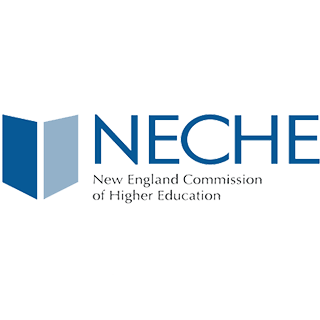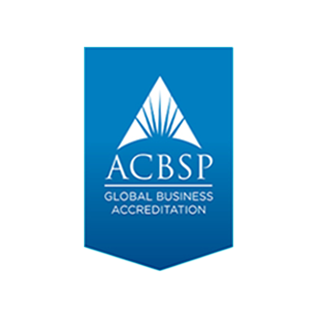
Master’s in Organizational Leadership Online Master of Science (MS) Degree

Program Overview Why get an organizational leadership degree?
Great leaders have a common trait: They’re driven to be better leaders. Better problem solvers. Better at leading with mission and purpose. More effective at managing conflict and navigating challenging times. With the Master of Science (MS) in Organizational Leadership online degree program, you'll learn skills to help you take your leadership skills to the next level.
Skills You'll Learn:
- Individual and team leadership
- Strategic goal setting
- Shift management
- Strategies to manage change
- Corporate social responsibility
- Best practices in leadership

Courses & Curriculum Online business courses that help prepare you to lead
Whether you’re in a leadership role now or preparing to step up to one, the MS in Organizational Leadership program lays the groundwork you’ll need to succeed. You’ll learn to lead individuals, teams and organizations; become adept at setting strategic goals; manage shifts in organizational structure; and gain the expertise to move business forward in times of change. The skills and insights you’ll acquire through this program can help you master best leadership practices – so you can feel ready to apply it in the workplace.
Online organizational leadership degree courses
Whether you aspire to be an HR manager, a nonprofit administrator, a corporate manager or a small business owner, the master’s in organizational leadership was designed with your goals in mind. SNHU’s program offers a balanced blend of theory and practice. Throughout your program, you’ll gain all the rewards of developing a valuable new skill set, without the risks of real-world learning experiences.
Courses may include:
Visit the course catalog to view the full MS in Organizational Leadership curriculum.
PC (Windows OS) Technical Requirements
| Component Type | PC (Windows OS) |
|---|---|
| Operating System | Currently supported operating system from Microsoft. |
| Memory (RAM) | 8GB or higher |
| Hard Drive | 100GB or higher |
| Antivirus Software | Required for campus students. Strongly recommended for online students. |
| SNHU Purchase Programs | Visit Dell |
| Internet/ Bandwidth | 5 Mbps Download, 1 Mbps Upload and less than 100ms Latency |
Apple (Mac OS) Technical Requirements
| Component Type | Apple (Mac OS) |
|---|---|
| Operating System | Currently supported operating system from Apple. |
| Memory (RAM) | 8GB or higher |
| Hard Drive | 100GB or higher |
| Antivirus Software | Required for campus students. Strongly recommended for online students. |
| SNHU Purchase Programs | Visit Apple |
| Internet/ Bandwidth | 5 Mbps Download, 1 Mbps Upload and less than 100ms Latency |
Additional Information:
- Laptop or desktop? Whichever you choose depends on your personal preference and work style, though laptops tend to offer more flexibility.
- Note: Chromebooks (Chrome OS) and iPads (iOS) do not meet the minimum requirements for coursework at SNHU. These offer limited functionality and do not work with some course technologies. They are not acceptable as the only device you use for coursework. While these devices are convenient and may be used for some course functions, they cannot be your primary device. SNHU does, however, have an affordable laptop option that it recommends: Dell Latitude 3301 with Windows 10.
- Office 365 Pro Plus is available free of charge to all SNHU students and faculty. The Office suite will remain free while you are a student at SNHU. Upon graduation you may convert to a paid subscription if you wish. Terms subject to change at Microsoft's discretion. Review system requirements for Microsoft 365 plans for business, education and government.
- Antivirus software: Check with your ISP as they may offer antivirus software free of charge to subscribers.
Licensure and Certification Disclosures
SNHU has provided additional information for programs that educationally prepare students for professional licensure or certification. Learn more about what that means for your program on our licensure and certification disclosure page.
Online organizational leadership certificates
For students seeking career growth with a specialized focus as a human resources professional, SNHU’s organizational leadership master’s also offers the opportunity to:
- Pursue certifications from the Society for Human Resource Management (SHRM)
- Pursue certification from the HR Certification Institute (HRCI®)
- Earn a graduate certificate in human resource management in conjunction with your degree program
Apply for free in minutes
Our no-commitment application can help you decide if SNHU is the right college for you and your career goals. Apply up until 2 days before the term starts!
Upcoming term starts: Aug. 25, 2025 | Nov. 10, 2025
Next term starts:
June 9, 2025
Online Student Experience What’s it like going to SNHU?
Attending college online at SNHU can be a life-changing experience. In fact, 93.2% of online students would recommend SNHU according to a 2023 survey with 21,000+ respondents.
What to expect:
10-week terms
Learn around your schedule
24/7 online support
What does an online course look like?
You’ll take your courses within SNHU’s Brightspace platform. This is where you’ll find your:
- Schedule of weekly assignments
- Discussion boards
- Grades
- Instructor announcements

What support services are available?
- Chat with your advisors
Get hands-on help from dedicated academic and career advisors. - Drop in for tutoring
Work with a tutor, any time of the day or night – no appointment necessary. - Learn from industry professionals
Instructors lead discussions and offer guidance – and they’re just an email away. - Use the online library
Access 600,000+ resources or chat with a librarian 24/7. - Reach out for accessibility help
Receive accommodations as an eligible student with disabilities. - Focus on your well-being
Connect with professionals to improve your health and wellness.
Learn from organizational leadership professionals
Our faculty members bring years of experience to the online classroom. Leveraging their knowledge and skills in organizational leadership, they connect theoretical concepts with real-life situations, allowing you to understand how scenarios play out in today's workforce.
Featured Faculty
Dr. Linda Ellington is currently a faculty lead at SNHU and an associate editor for the International Journal of Adult Vocational Education and Technology (IJAVET); as well as a peer reviewer for many international journals and books. She has extensive experience in faculty development, curriculum design and delivery of those designs.
Position
Faculty Lead
Joined SNHU
2014
Education
- Doctor of Education in Educational Leadership from Florida Atlantic University
What Our Instructors Have to Say

“The MS in Organizational Leadership provides an opportunity to examine leadership, change management and corporate social responsibility from a theoretic and practical perspective."
Dr. Jennifer Varney, associate vice president, academic effectiveness & instructor experience at SNHU
Why SNHU?
At Southern New Hampshire University, you'll have access to a powerful network of more than 400,000 students, alumni and staff that can help support you long after graduation. Our instructors offer relevant, real-world expertise to help you understand and navigate the field. Plus, with our growing, nationwide alumni network, you'll have the potential to tap into a number of internship and career opportunities.
Recently, SNHU has been nationally recognized for leading the way toward more innovative, affordable and achievable education:
- U.S. News & World Report
Named SNHU the 2024 Most Innovative University in the North - The United States Distance Learning Association (USDLA)
Awarded SNHU the 21st Century Distance Learning Award for Excellence in Online Technology - Google.org
Gave SNHU a $1 million grant to explore soft skills assessments for high-need youth
Founded in 1932, Southern New Hampshire University is a private, nonprofit institution with over 180,000 graduates across the country. SNHU is accredited by the regional accreditor New England Commission of Higher Education (NECHE), which advocates for institutional improvement and public assurance of quality.
Admission Applying to SNHU is fast and free
No application fee. No test scores. And no college essay. Just a simple form with basic information. It’s another way SNHU helps you reach your goals sooner.
All it takes is 3 simple steps
It's easy, fast and free.
Whether you're applying for an undergraduate or graduate degree, you’ll fill out a form to verify your previous education experience. As part of our admissions process, we'll help you request transcripts from your previous school(s) to see if you can transfer any credits into your SNHU program! (Also for free!)
After reviewing your official evaluation, you can decide if SNHU is right for you! If you choose to enroll, just pick your start date and get ready for classes to begin.
Talk to an admission counselor: 888.327.SNHU | enroll@snhu.edu
Accreditations
SNHU is accredited by the regional accreditor the New England Commission of Higher Education (NECHE). The university also carries specialized accreditations for some programs.
This program and its concentrations are accredited by the Accreditation Council for Business Schools and Programs (ACBSP). Student achievement data can be found on the ACBSP accreditation page.


Tuition Cost & Savings College can be more affordable than you think
As a nonprofit university, SNHU offers some of the lowest online tuition rates in the country. And when you work with our Financial Services team, we'll explore ways to help you save even more on your education – and customize a payment plan that works for you.
Online graduate tuition
*before previously earned credits are applied
Tuition rates are subject to change and are reviewed annually.
**Note: Students receiving this rate are not eligible for additional discounts.
Additional costs: Course materials vary by course.
Transfer credits and lower your cost by:
$1,911 $3,822 $5,733 $7,644If 3 of your prior learning credits ($637/credit) are accepted toward your master’s degree.
Your remaining tuition cost: $17,199
If 6 of your prior learning credits ($637/credit) are accepted toward your master’s degree.
Your remaining tuition cost: $15,288
If 9 of your prior learning credits ($637/credit) are accepted toward your master’s degree.
Your remaining tuition cost: $13,377
If 12 of your prior learning credits ($637/credit) are accepted toward your master’s degree.
Your remaining tuition cost: $11,466
How we estimate your tuition cost:
We look at the cost per credit multiplied by the number of credits you need to earn for a master's degree. Most master's degrees require 36 credits. SNHU allows you to transfer in up to 12 credits, requiring a minimum of 24 credits to be taken at SNHU. This is only a tuition estimator and doesn't account for other fees that may be associated with your program of choice.
Ways to save on online tuition
Transfer credits toward your master's degree program at SNHU. If you’ve taken one course or many, we’ll evaluate them for you.
Fill out the FAFSA to see if you’re eligible for grants or work-study. (You could also be offered loans, though you’ll have to pay those back later.)
Earn credits in leadership, technology and more – while taking advantage of an online graduate tuition discount for active-duty service members and spouses.
Getting free money for college – from SNHU or an outside organization – could help you save hundreds or even thousands of dollars.
Bring in credits from popular options like CLEP, Sophia Learning, Google and other common credit for prior learning (CPL) experiences.
Learn how you can save money with tuition reimbursement from your employer.
Receive an online tuition discount if your organization has partnered with SNHU for educational benefits. See if your organization partners with us.
Career Outlook What can I do with an online degree in organizational leadership?
In the face of ever-evolving market forces, organizations industrywide support the development of leadership skills in all their employees. With an online MS in organizational leadership, you'll gain skills that can help prepare you to lead in any number of roles.
Leadership skills are vital for all members of an organization, from top-level executives to individual contributors. Organizations of all types need effective leaders and continue to invest in developing and supporting leadership skills.
By pursuing the MS in Organizational Leadership, you'll be making a lifelong investment in your own professional growth. You’ll develop skills in leadership, communication, problem solving and teamwork – fundamental job skills sought after by employers in every industry.
Industries
The online MS in Organizational Leadership is designed to meet the needs of today’s workforce. With advanced knowledge in change management strategies and applications to real-world problems, along with corporate social responsibility policies and practices for immediate implementation, you'll be prepared to work in a number of settings including:
Plan, coordinate and direct the administrative functions of an organization, in addition to overseeing the recruiting, interviewing and hiring of new staff.
Plan programs to generate interest in products or services, collaborating with art directors, advertising sales agents and financial staff members along the way.
Plan, direct, and coordinate medical and health services, adapting as needed to changes in healthcare laws, regulations and technology.
Coordinate and supervise programs that support public well-being, in addition to directing workers who provide these services to the public.
Oversee operations, coordinate curriculums, manage staff and provide a safe and productive learning environment for students.
Supervise the operations of manufacturing, as well as coordinate, plan and direct activities involved in creating a range of goods.
According to the U.S. Bureau of Labor Statistics, employment for training and development managers is projected to grow 6% through 2032.
According to the U.S. Bureau of Labor Statistics, the 2023 median annual salary for training and development managers was $125,040.1
Understanding the numbers
When reviewing job growth and salary information, it’s important to remember that actual numbers can vary due to many different factors—like years of experience in the role, industry of employment, geographic location, worker skill and economic conditions. Cited projections do not guarantee actual salary or job growth.
What SNHU students are saying

Frequently Asked Questions
Organizational leadership is a management approach in which leaders help set strategic goals for the organization while motivating staff to successfully achieve those goals. Think of organizational leadership as having two fundamental components – the organization and the leader.
What makes an organizational leader different from, say, a department manager?
Organizational leaders understand the business, for one.
Organizational leaders know business and their unique role. Dr. Linda Ellington, SNHU faculty lead for the organizational leadership bachelor’s and master’s programs, said they need to look ahead and be able to envision the organization’s future. They need to have integrity and ethics. They also need to be able to lead large initiatives.
Deborah Gogliettino, SNHU’s associate dean for human resources, believes that organizational leadership is a must for anyone whose goal is to help shape an organization’s future.
That describes Nathalie Ojeda '21G well.
"I have always been passionate about helping others," she said. "I challenge myself to make sure I create a positive change in anything I do or create support for someone else. ... (This program) allows students to focus on creating leaders in today’s world by focusing on communication and growth while teaching how to overcome change and adversity in a fast-paced environment."
Organizational leaders bring a lot to a business. They help maintain structure. They create clear roles and responsibilities. They foster leadership within their teams. They set the bar for performance and promote organizational best practices. They use their vision and problem-solving skills to tackle short-term and long-term strategic challenges.
Dr. Linda Ellington, SNHU faculty lead for the organizational leadership master’s and bachelor’s programs, describes the importance of organizational leadership this way: “An OL has the ability to look wider and deeper and to bring an advanced skill set to a company’s decision-making and strategic thinking.”
Deborah Gogliettino, SNHU’s associate dean for human resources, points out that organizational leaders can take the form of everything from an HR manager to a small business owner. Essentially, she said, it all boils down to one fundamental question: “Does this job or position help the organization move forward?”
That's all Willie Wingfield '21 wants to do with his career.
"My MS degree has prepared me to understand and drive change in my current role, as well as appreciate the steps necessary to gain support to create momentum for change," he said. "The degree has created opportunities for me to achieve my current role that supports change and talent development."
It’s a great degree! It’s not only practical and versatile. It also builds a skill set every organization needs.
"The organizational leadership focus has greatly benefited my role as a leader in the field of behavioral health, therapy and education," said Chase Thomas '21G. "Also, one of my goals long term is to have my own business, so this program has helped me with that."
As organizations in every industry try to navigate turbulent times, the need for effective leaders at every level continues to grow. Experts in organizational leadership can play a pivotal role in managing change. They can also help implement internal leadership development programs. The skills and insights you’ll acquire through the master’s in leadership will help you take on these critical roles.
Jeff Warner, SNHU adjunct faculty member and organizational leadership instructor, said, “We live in a world that is constantly changing. A key finding in The Future of Jobs Report 2020 by the World Economic Forum is that technology as a driver of change will displace 85 million current jobs with 97 million new jobs in the next five years.”2
Warner believes it’s essential for everyone in business to re-skill themselves through lifelong learning. “My advice to students is to be curious, listen, observe, keep an open mind and never stop loving to learn something new,” he said.
Those are just a few of the hallmarks of great leaders that the master’s in organizational leadership helps cultivate.
Definitely! The master’s in leadership is a highly versatile degree. It’s also adaptable to your specific areas of interest, whether that’s in human resources, nonprofit administration or another specialty.
Sam Mahra ’09G says his organizational leadership master’s helped him appreciate the role of leadership in helping organizations be more effective. He came away knowing how to motivate people, particularly in group settings.
What’s more, demand for strong, effective leadership remains steady across every industry, especially for those with a master’s degree. The U.S. Bureau of Labor Statistics (BLS) projects 6% job growth for training and development managers through 2032, with a median annual salary of $125,040 in 2023.1 Similarly, BLS projects 5% growth for human resources managers, with a median wage of $136,350 in 2023.1
Deborah Gogliettino, SNHU’s associate dean for human resources, believes skilled organizational leaders will always be in demand. “Organizations will always embrace someone who can bring a vision, especially one of growth and sustainability," she said.
Melissa Tilton '14 '21G knows earning her OL degree was worth it.
"The program has me looking at things differently, critically thinking about actions I take before I take them, and also giving me the confidence to do things differently," she said. "As a leader, I know I have more tools in my toolbox to support my team… I can do better for them because of my SNHU education."
Organizational leaders are CEOs, political party leaders, school superintendents, department heads, human resources managers, training and development managers – the list goes on and on.
"What is great about the MS in Organizational Leadership program is its versatility," said Dr. Christina Dumeng, associate dean at Southern New Hampshire University. "For example, whether you want to be in a leadership position, are new to leadership or have extensive leadership experience, this program is designed to serve all levels of one’s profession."
Whether you work in healthcare, technology, education, construction, manufacturing, retail or any other industry, organizational leaders are vital to an organization’s performance. These are just a few of an organizational leader’s main responsibilities:
- Plan, direct and coordinate critical organizational functions and staff
- Develop and oversee essential programs and teams
- Review and recommend programs from outside vendors
- Train or consult with other managers, specialists and support staff
- Align programs with the organization’s strategic goals
The knowledge that Debra Crombie '21 learned in her courses helped her make a successful career jump.
"During the pandemic, my role as VP of Talent Development was eliminated," she said. "Because of my degree, I had the confidence to start my own training company and used the tools I learned in my Entrepreneurship and Small Business Management class to write a business plan to get that ball rolling.... I am not sure I would have had the right tools to start my own business and would have been stuck waiting for the right full-time gig at another company."
The master’s in organizational leadership prepares you for a wide variety of roles, including:
- Operations manager
- Human resources manager
- Training and development manager
- Consultant
If you’re looking to move up to a management role, this degree can help build a valuable set of skills and knowledge. The same goes for mid-management employees seeking to advance to senior leadership levels.
Sources & Citations
1Bureau of Labor Statistics, U.S. Department of Labor, Occupational Outlook Handbook, on the internet, at:
- https://www.bls.gov/ooh/management/home.htm (viewed April 23, 2024)
- https://www.bls.gov/ooh/management/training-and-development-managers.htm (viewed April 23, 2024)
- https://www.bls.gov/ooh/management/human-resources-managers.htm (viewed April 23, 2024)
Cited projections may not reflect local or short-term economic or job conditions and do not guarantee actual job growth.
2World Economic Forum, “The Future of Jobs Report 2020,” on the internet, at http://www3.weforum.org/docs/WEF_Future_of_Jobs_2020.pdf (viewed April 8, 2024).


 Dr. Linda Ellington
Dr. Linda Ellington






